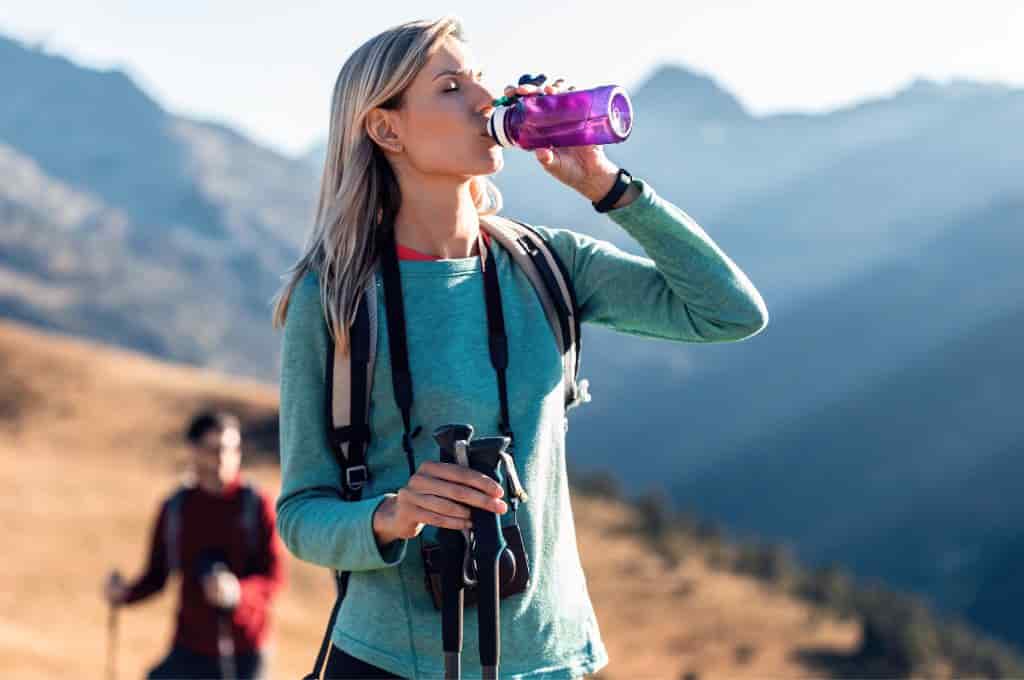Tips to Beat the Heat while Traveling?
- By Seema
Summer is the most anticipated season of the year, with everyone looking forward to trips with family and friends. However, it can get scorching hot, especially with the record-breaking heat waves that are currently sweeping the globe. Visiting destinations with temperatures above 40 degrees Celsius is not desirable but it is what many vacationers have to do. If not approached with caution, traveling during a heat wave can be challenging and even dangerous. Migraines, sunburns, sunstroke, dizziness, exhaustion, and dehydration are just a few of the problems that can occur during peak summer in many parts of the world.
If you have summer travel plans and don’t want the heat to make you uncomfortable or sick while you’re out and about, it’s best to come prepared. Follow these essential tips to combat the sweltering temperatures while traveling so that the heat doesn’t ruin the experience for you.

Plan Beforehand
Keep an eye on weather forecasts and heat advisories for your travel destination. This will assist you in planning your activities and taking the necessary precautions. Check to see if your hotel has an air conditioner. During summer, air conditioning becomes a necessity as it gives you space to retreat and recharge. If you are not used to the heat, you should take it easy for the first day or two before embarking on more hectic schedules. Make reservations in advance to avoid queuing in the direct heat of the sun. Plan your days so that activities are clustered by location so you don’t have to drag yourself all over the place in hot weather. Use public transport and taxis to reduce your exposure to the sun. If the heat is intense, try to minimize physical exertion. Hiking and other strenuous activities should be reserved for cooler times of the day. Stick to your plan, but also allow yourself to be spontaneous and take a break when your body calls for it
Stay Hydrated
Dehydration is the greatest threat during a heatwave, as it can lead to exhaustion, heat stroke, and severe illness. Carry a bottle of water with you at all times in hot weather because it is critical to consume non-alcoholic beverages and fluids every half-hour, even if you aren’t thirsty. If you sweat a lot, consume a packet of electrolytes or oral rehydration salts once or twice a day to help replenish salts and minerals. Lemonade, coconut water, smoothies, fruit juices, sports drinks, and infused water are the best drinks to keep you energized and refreshed. Fruits contain 80-90% water, essential vitamins, and natural sugar, making them an excellent source of fluid. Oranges, watermelons, grapes, plums, apples, strawberries, pineapple, and peaches are great for summer. When traveling in hot and humid climates, it is best to stay away from dehydrating beverages like alcohol, sugary drinks, and caffeine.

Eat Right
When the temperature outside is high, it makes sense to eat light. Our bodies produce heat during the digestion process, and consuming food that takes a long time to digest will make you feel worse. Hot, greasy, and spicy foods should be avoided as much as possible as they reduce the percentage of naturally present water in your system. Say no to junk food and opt for salads and balanced meals to boost your immunity. Eat succulent vegetables like lotus stem, cucumber, lettuce, pumpkin, and bottle gourd to keep you hydrated. Salty snacks such as nuts, cheese, trail mixes, and popcorn are excellent choices for replenishing electrolytes. Cold foods like ice cream and cold drinks provide temporary relief from the heat by lowering your core temperature. What better reason to indulge in your favorite ice cream? Use insulated bags when carrying food as heat can ruin it.
Dress Appropriately
Wear light-colored, loose-fitting clothing made of breathable fabrics such as cotton, rayon, and linen. The natural fibers help to absorb sweat and improve circulation. Polyester and synthetic fabrics are sticky and can cause sweating and elevated body temperatures. While it may be tempting to cover up as little as possible on a hot day, putting on light layers can help shield you from the sun and maintain a cooler body temperature. Wear comfortable, lightweight, breathable trainers or sandals to protect your feet.

Protect Your Skin
Never underestimate the sun, even if the sky is overcast. Use an umbrella, scarf, wide-brimmed hat, or cap to protect your head. Wear broad-spectrum sunscreen with an SPF of at least 30 to avoid not only skin tanning but also other skin diseases caused by the sun’s ultraviolet rays. Sun exposure can also cause the body to lose water. Apply before you go out in the sun, and then every 2-3 hours after that. All exposed skin, including the face, neck, arms, and legs, should be liberally applied with good-quality sunscreen. Sunglasses with UV protection are required because excessive sun exposure can cause eye irritation and redness.
Stay Indoors During Peak Sun Hours
The sun’s intensity is usually at its peak between 10 a.m. and 4 p.m. If you are visiting a country that is extremely hot in the summer, it is best to stay indoors from mid-morning until late afternoon. Plan your excursions before 11 a.m. and after 4 p.m. to avoid the scorching heat and huge crowds. If you visit the attractions during the early morning hours, you’ll be finished with your half-day sightseeing before most people leave their hotel. Return to your accommodation in the afternoon and cool off with a leisurely lunch or a siesta before setting out again in the evening. Museums, churches, spas, classes, theatres, shopping malls, and art galleries can provide a welcome respite from the summer heat, particularly if they have air conditioning.

Seek Shade & Refresh Yourself
There are many possible ways to stay cool when you travel in extreme heat. Whenever you’re outdoors, look for shaded areas to rest and cool down. This could be under trees, umbrellas, or any available structures. Walk in the shaded areas of pedestrian routes to avoid exposure to the sun’s rays. Carry a paper or battery-powered fan with you to provide some relief while on the go. Wet your hair and splash cold water on your pulse points to quickly lower your core temperature. Use a spray bottle to liberally mist yourself. Swimming, water parks, kayaking, snorkeling, and other water activities are excellent ways to beat the heat. Take a body shower before going to bed to lower your body temperature and help you sleep better. Heat, inflammation, and sunburn can be relieved with Aloe Vera and ice packs.
Stay Alert
Your body may not be able to withstand the heat and may react, so you should always be on guard. Recognize the symptoms of exhaustion, heat cramps, and heat stroke, such as extreme lethargy, dizziness, headache, nausea, vomiting, heavy sweating, racing heartbeat, and fainting. Warning signals should not be ignored, and you should rest immediately. If the condition persists or worsens, consult a doctor right away.
Remember that staying safe and comfortable in hot weather necessitates forethought and paying attention to your body’s signals. Prioritize your health and take the necessary precautions to enjoy your vacation while minimizing the effects of extreme temperatures.
